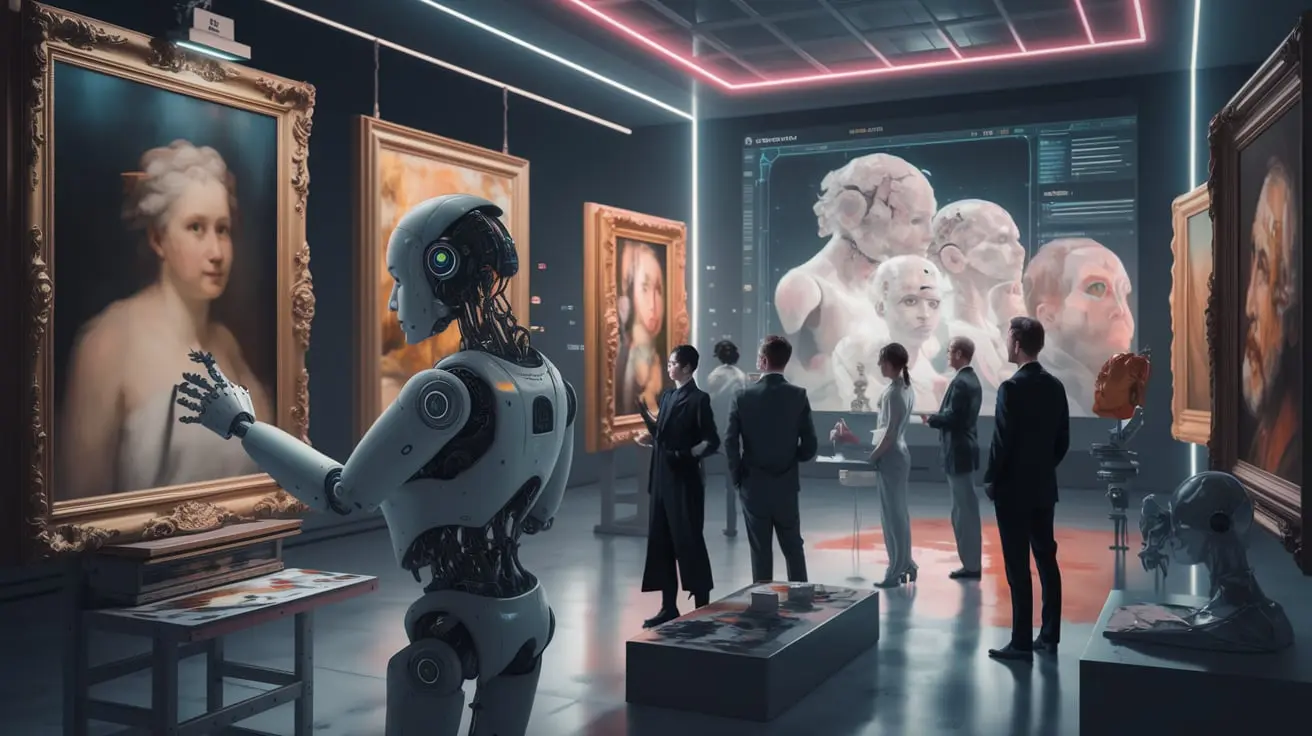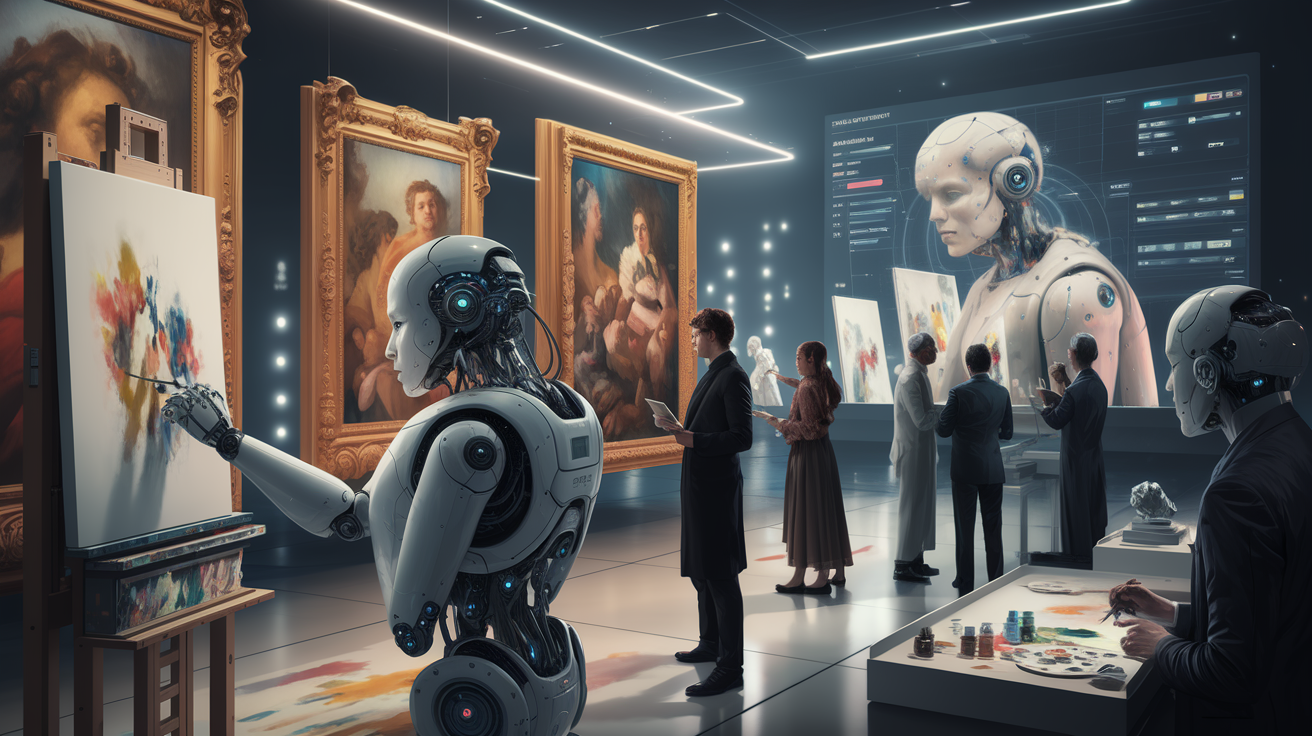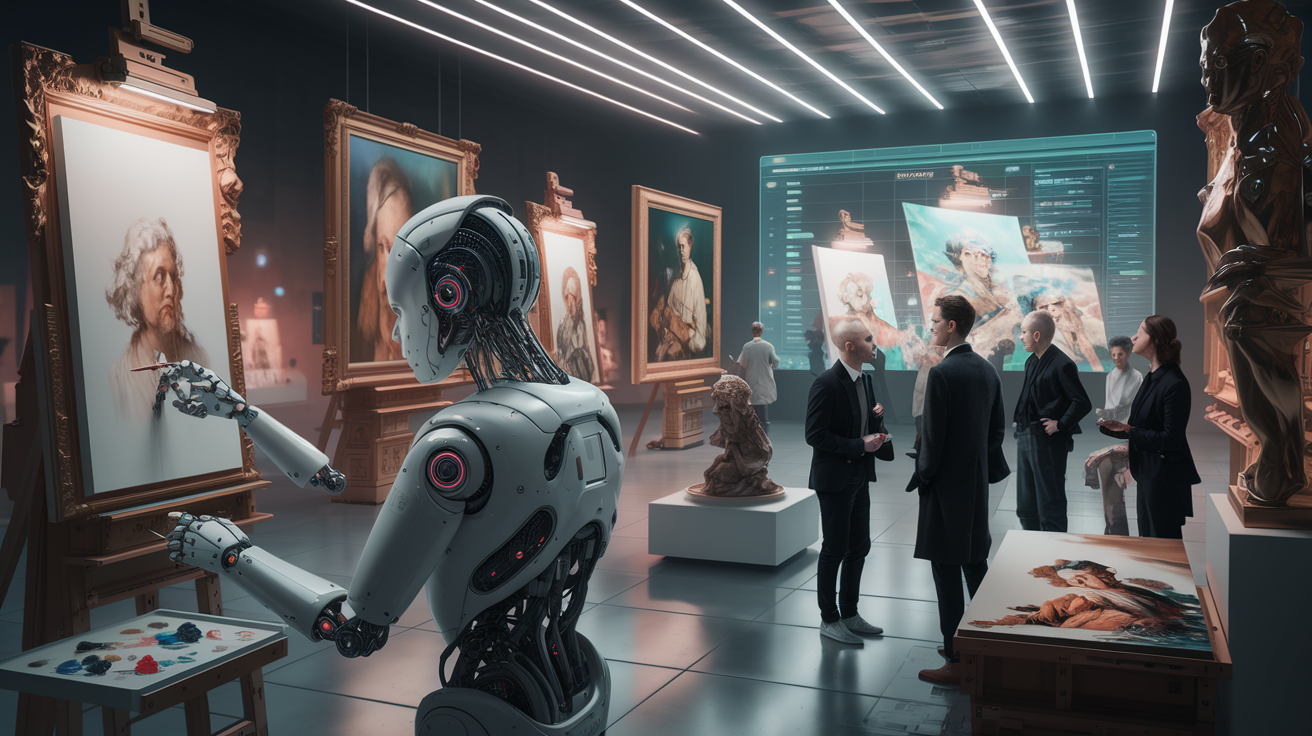Imagine walking through an art gallery, staring at a breathtaking painting that evokes deep emotions. The brushstrokes seem intentional, the composition mesmerizing, the colors perfectly chosen. But what if you found out that no human hands ever touched the canvas? Instead, an artificial intelligence created it.
Would it change how you feel about the painting? Would it still be considered "real" art?
---
The Rise of AI-Generated Art
AI has already proven its ability to generate stunning artworks. Programs like DALL·E, MidJourney, and Stable Diffusion can create paintings, sketches, and even sculptures that mimic famous artists or develop entirely new styles. But right now, we can usually tell when something is AI-made.
Now, imagine a future where AI improves so much that no one— not even expert critics— can tell the difference between AI-generated and human-created masterpieces. What would happen to the art world?
---
How Would It Change Art?
1. The Line Between "Human" and "Machine" Art Blurs
If AI can create a Van Gogh-style painting that is indistinguishable from the real thing, does that make it as valuable as a human-made Van Gogh?
If AI-generated art makes people feel emotions, does it matter who (or what) created it?
2. Artists May Struggle to Compete
AI can work instantly, producing countless pieces in seconds, while human artists take weeks, months, or years.
Art competitions and galleries might struggle to define what counts as “authentic” art.
3. A New Renaissance or a Crisis?
Some might see this as an exciting evolution—AI could inspire new creative movements, allowing artists to collaborate with machines rather than compete against them.
Others may see it as the death of traditional art, fearing that human creativity will become obsolete.
---
Would We Still Value Human Art?
Even if AI creates perfect art, many people may still prefer human-made masterpieces because they carry stories, struggles, and emotions that a machine doesn’t experience.
For example:
A painting by Leonardo da Vinci is valuable not just because of its beauty, but because of his genius, vision, and historical significance.
A song written by a struggling musician resonates because it comes from real emotions and life experiences.
AI may be able to mimic emotions, but can it truly feel them? That question might determine whether human-made art remains special.
---
The Future of Art
If AI-generated art becomes indistinguishable from human masterpieces, it could lead to:
✅ New creative tools for artists.
✅ Faster production of high-quality art.
✅ A redefinition of what "creativity" truly means.
But it could also cause:
❌ Job losses for artists and designers.
❌ Legal battles over copyright and originality.
❌ A world where human-made art struggles to stand out.
One thing is certain: whether we embrace it or fear it, AI is transforming the art world forever. The real question is—will we still cherish human creativity, or will machines take over the canvas of the future?



What if AI-generated art becomes indistinguishable from human-created masterpieces?